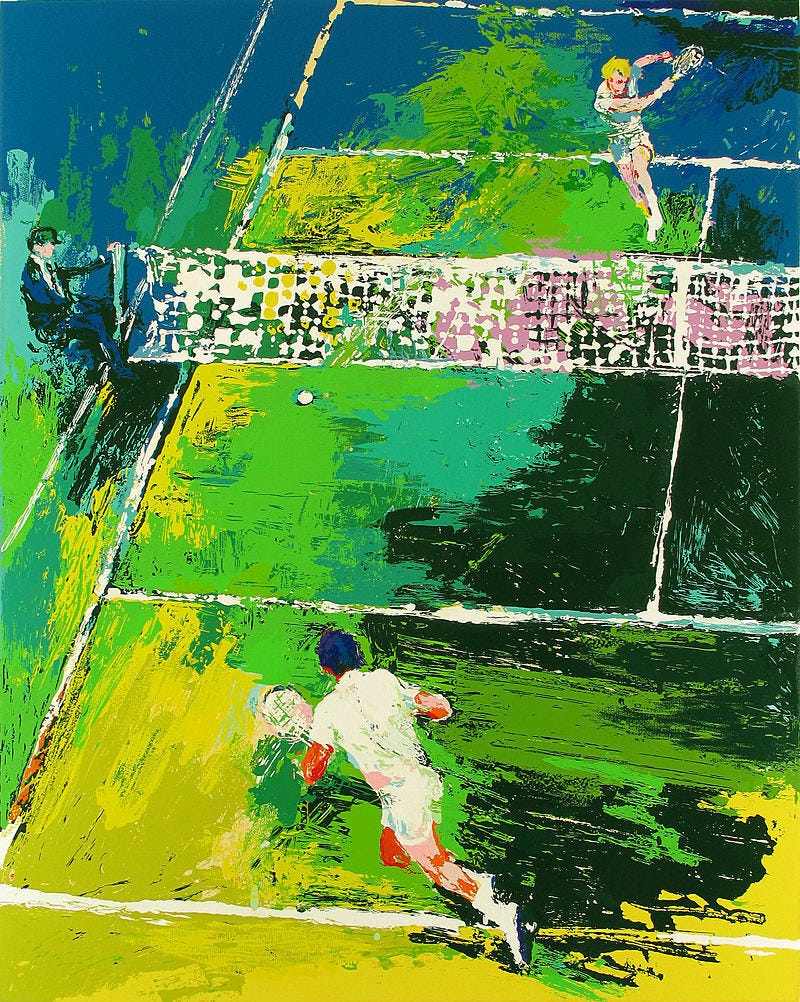Falling for tennis
Obsessing my way to sanity.
Over the past two weeks, I could not think about anything other than tennis. I thought about it first thing in the morning and lost sleep over it at night. Even now, with the US Open painfully in the rearview mirror, I find myself refreshing sports media, Reddit, and Twitter like a lab rat looking for a hit, seeking out even the smallest hints of tennis wherever I can find them. I’m ordering tennis books, adding the few documentaries I haven’t yet watched to queue, and counting down the days until the Asian Swing.
The seeds of this obsession were planted two years ago when I first went to the US Open, but in some ways, living for tennis has always been in my blood. My mom loves and knows more about tennis than anyone I’ve ever met. She’s an encyclopedia of information—rattling off details about matches, controversies, and personalities from decades ago as if they happened yesterday. She could hop into the ESPN booth and make the middling commentary of Chris McKendry and Chris Fowler look even more subpar.
Because of her, tennis was the unofficial backdrop of my childhood. Even when I wasn’t looking, it was always there, on our TV, weaved into her old tennis tees, in the way she made Serena and Roger and Pete and Andy (both of them) central characters in the life of a girl who cared little for sports. Yes, she put me in lessons for a bit too, but going through the motions (badly, at that) was never going to hook me. I needed storytelling and emotion—and, perhaps, a rough life patch—to get sucked in.
I used to think my mom’s infatuation with the sport was odd, as she is the furthest thing from sporty. But I’ve learned that tennis offers something beyond the confines of athleticism—its intellectual catnip, a complex and beautiful game that’s ruled not just by physicality but mind games and intuition. As viewers, we’re not just watching athletes move their bodies in unbelievable ways but seeing them strategize (and attempt to regulate emotion) under immense pressure. We partake in their exuberance and their despair, releasing something from ourselves in the process.
I’ve always found the body compelling for what it reveals about the mind, and no sport encapsulates that more for me than tennis. If you watch certain players closely enough you can sense whether or not their nerves will fuel them or cause them to choke, whether they can hype themselves up enough to rally, or if they’ll wither into themselves. Every single match serves up varying shades of mental toughness for us to unpack, analyze, and try to make sense of. And yet for all you think you know, it’s a game that almost always surprises you, delighting you and breaking your heart in equal measure. Just when you think you can guess the result, you’re made to look a fool.
My mom told me recently that tennis had saved her life many times and I can feel it saving mine. I’ve watched my life shrink in the face of chronic pain, with my abilities limited and passions stunted by the need to stand still. For a while, it felt like all of my obsessive energy—once directed towards things like running and fashion—had nowhere to go and was thus extinct. But tennis has reignited that voracious sensibility, my unwillingness to settle for a cursory understanding or enjoyment of something but, instead, to devour it whole.
“I’ve never seen you so obsessed with anything before,” my fiance said the other day, with a slight sense of alarm. And it felt for the first time in a while like I was back.



